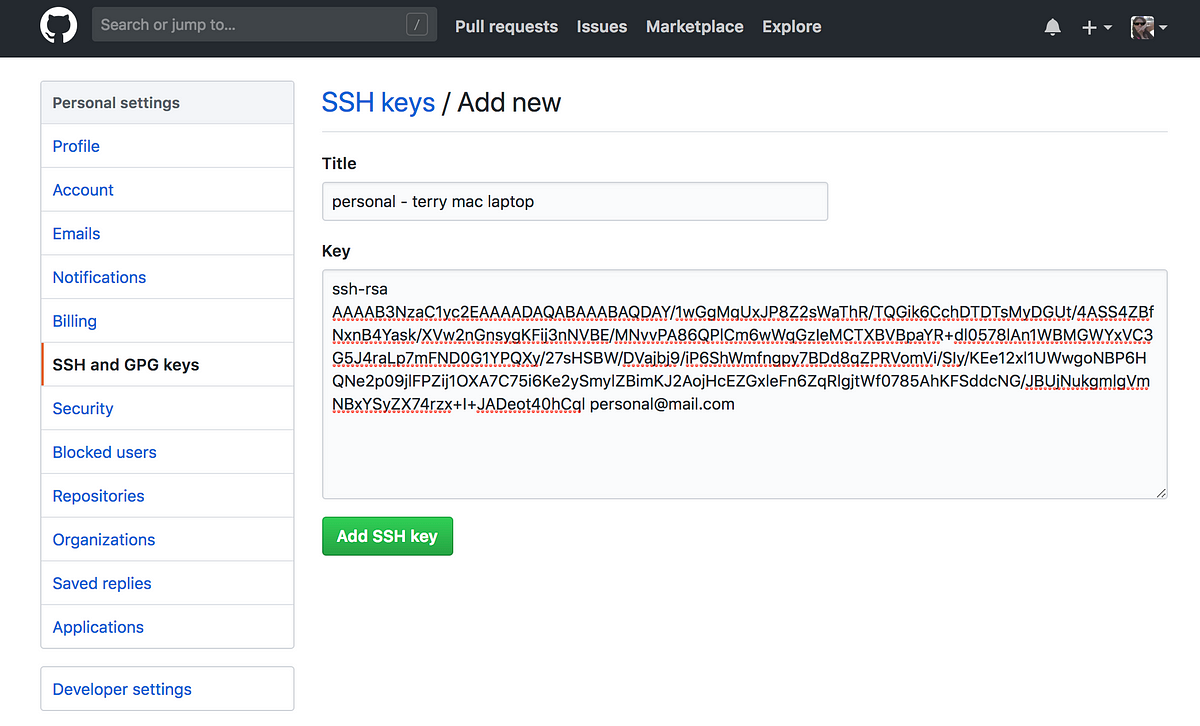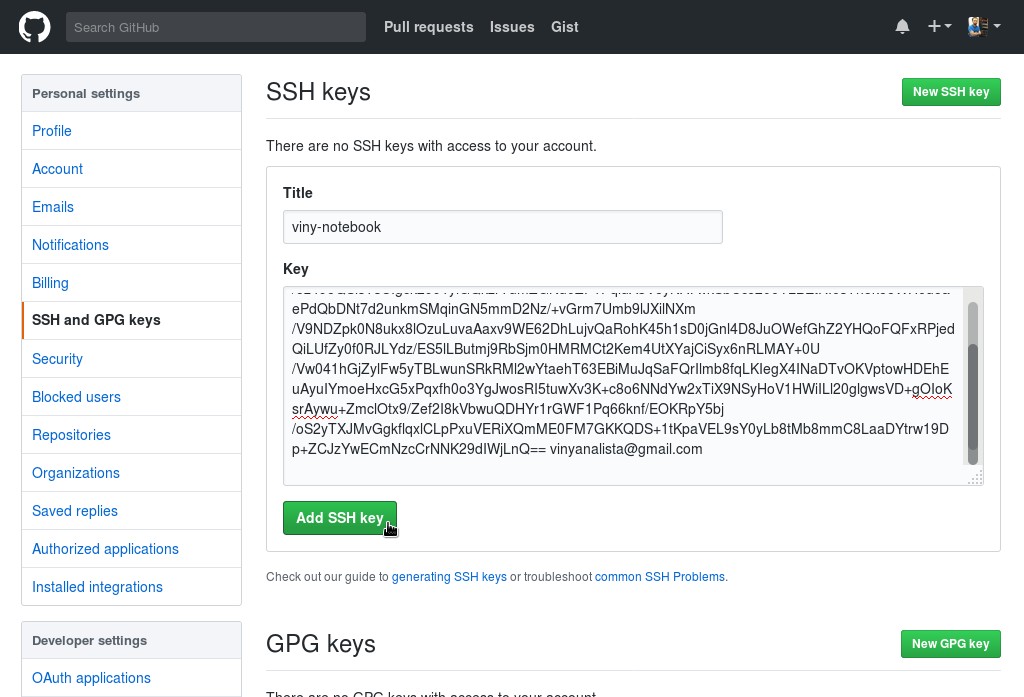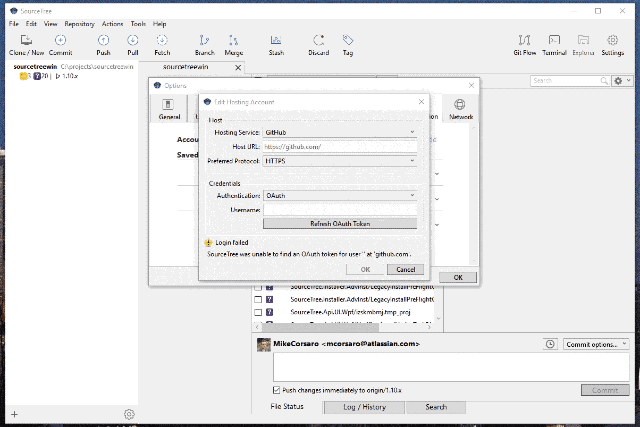

- #SSH KEYS GITHUB MAC OS HOW TO#
- #SSH KEYS GITHUB MAC OS INSTALL#
- #SSH KEYS GITHUB MAC OS PASSWORD#
- #SSH KEYS GITHUB MAC OS WINDOWS#
#SSH KEYS GITHUB MAC OS HOW TO#
Next, let's see how to connect to a separate DB server via a remote server. This was the scenario where the DB server was running on the localhost of the remote server. pem file as the SSH key, run the following command for the above scenario: ssh -L 8888:127.0.0.1:3306 -i this case you will not be asked for the password, as authentication will be done using your SSH key. If your remote server is an EC2 instance on AWS and you have a. Now, you will be able to access the MySQL server using 127.0.0.1:8888 address from your local machine.
#SSH KEYS GITHUB MAC OS PASSWORD#
Once you do this, you will be prompted to enter the password for the user st-user, so enter the password an hit Enter, and the SSH tunnel will be created. Here you can give any port number after 1024, because until 1024 port number, all ports are privilege ports.ġ27.0.0.1: This is the IP for the localhost running on the remote server, this is also the destination we aim to reach via the SSH server.ģ306: This is the destination port, assigned to the MySQL sever on the remote SSH server.Īnd then is the username and the IP address/URI for the SSH server. Then to connect to the DB server, we can run the following command to setup an SSH tunnel: ssh -L 8888:127.0.0.1:3306 This is the local port that we will open for the SSH tunnel on the local machine. If our remote server name is my-remote-server.host and the SSH user is st-user, and on the same server a DB service let's say MySQL is installed which is accessible via localhost:3306 on the remote server.

We can use the ssh command to set up an SSH tunnel with a remote server, considering the SSH port which is port number 22 is open for the remote server. I hope the two examples are clear, and now you know, why SSH tunneling is needed. But because the DB server is accessible via the SSH server, we can setup an SSH tunnel with the SSH server to reach the DB server. or want to connect your local SQL client with the remote database, you won't be able to do it directly.


Now, if you want to check something or do something on the DB server. But, for security, the DB server is never exposed to the internet and is kept on the local network, which will be accessible via the SSH server, as the SSH server is on the same local network. On the SSH server, because we are running the Web server, port 80 would be open to all, because then only the website or the web application hosted on that server will be available to its users. Let's take another example If we are using AWS service and we have two servers one is a DB server and another is the SSH server on which the Web Server is running. In such a scenario, we set up an SSH tunnel with the remote server, to securely connect to the local network of the remote server to access the 3306 port on the remote server. In this case, if you want to access the DB server from your local machine(connected to the internet), you won't be able to do it. If we have a database server, let's say MySQL running on a remote server with some IP address and for which the port number 3306 which is the default port for MySQL is only available on the local network of the remote server. Let's take a simple example to understand this.
#SSH KEYS GITHUB MAC OS WINDOWS#
If you are a Windows user, I would recommend using Mobaxterm application for doing this.Īn SSH tunnel or SSH port forwarding is a mechanism to establish a secure connection between a client machine and a server.
#SSH KEYS GITHUB MAC OS INSTALL#
Yes, we do not have to install any other application for doing so, like we do in Windows. If you want to setup SSH tunnel with your remote server using your Macbook, you can easily do so using the default Terminal application available in the Mac OS.


 0 kommentar(er)
0 kommentar(er)
